Large cities were considered unsustainable by many, before modern sanitation: pic.twitter.com/ti2f9CbTdR
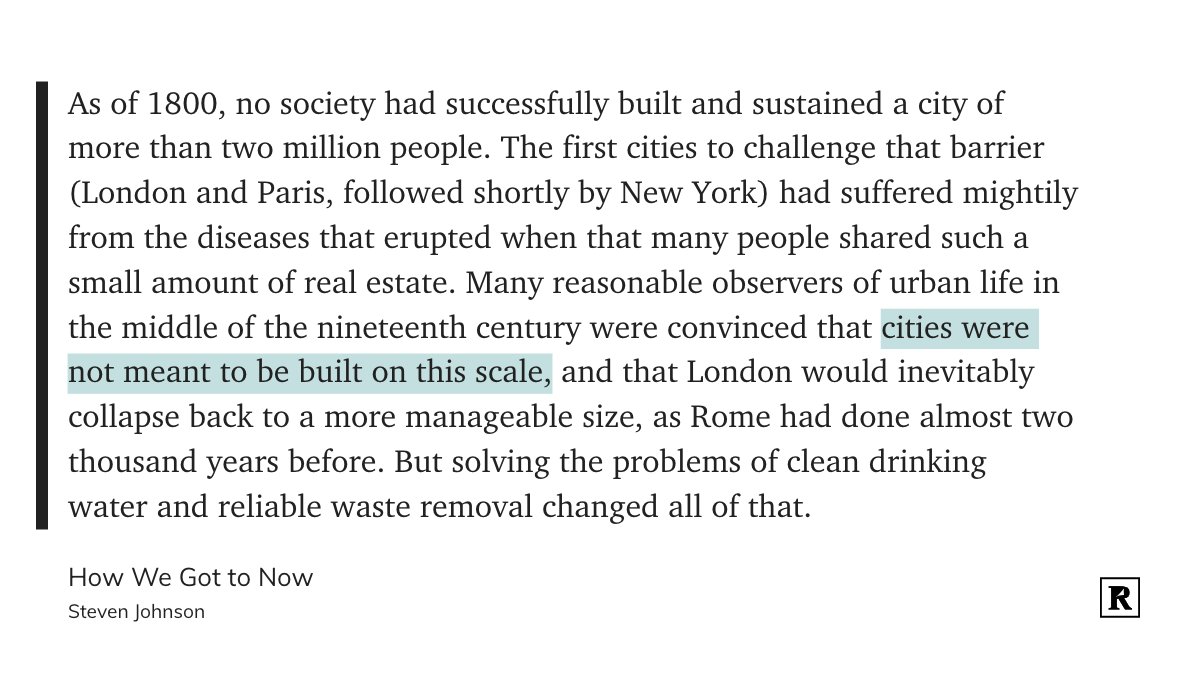
Two deeply opposed worldviews. Are we the central, active agents in our own story, actively rebuilding and improving our environment? Or simply organisms in that environment that need to fit inside it like any other? @CharlesCMann pic.twitter.com/kgbF1Ja1hI
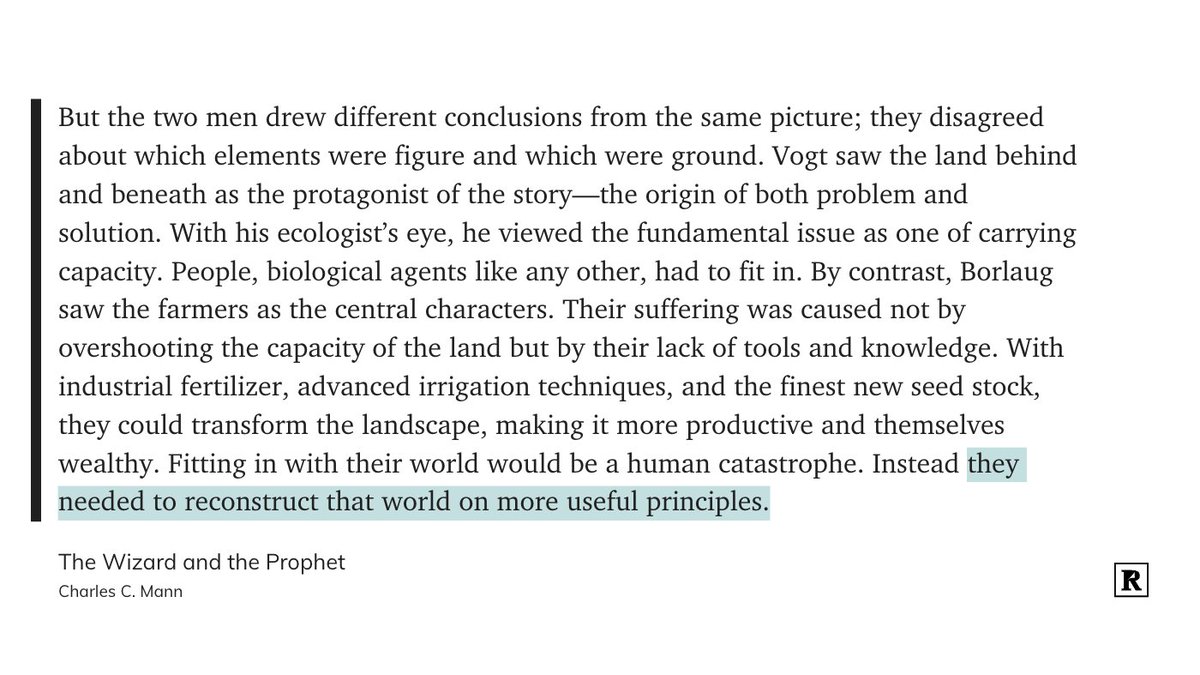

Two deeply opposed worldviews. Are we the central, active agents in our own story, actively rebuilding and improving our environment? Or simply organisms in that environment that need to fit inside it like any other?

The phonograph was invented in the late 1800s, but for decades, recording technology was quite primitive by today's standards: pic.twitter.com/RcVLhkSbKO
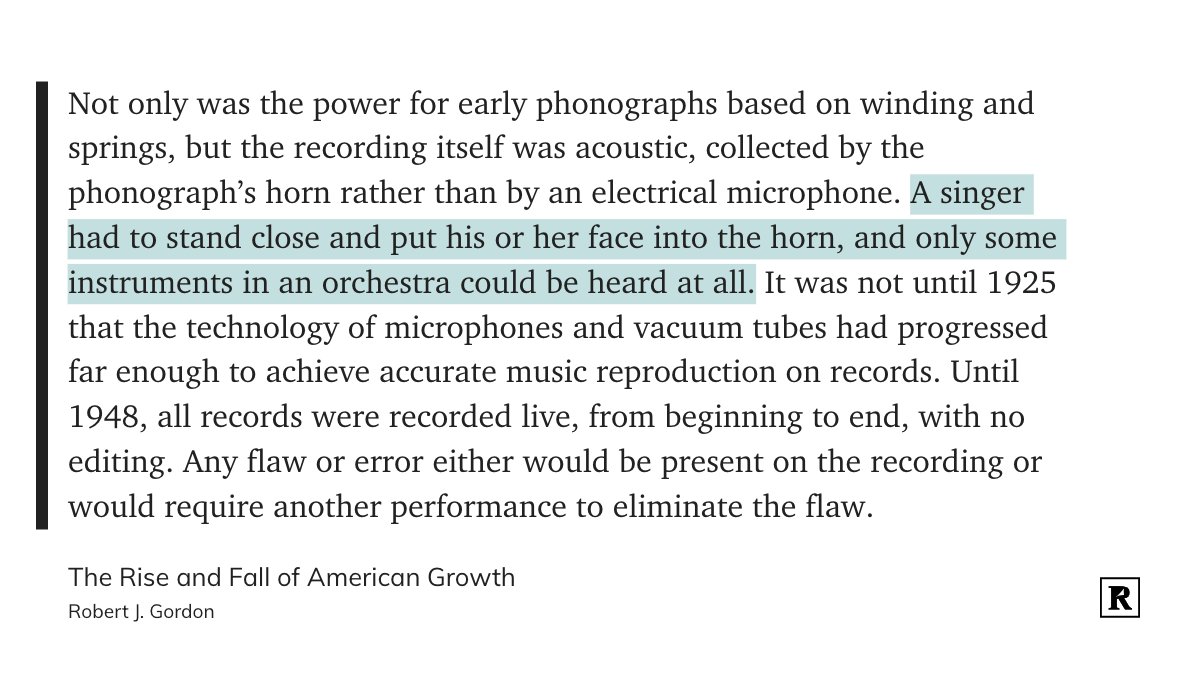

Household entertainment, such as it was, c. 1870: pic.twitter.com/RHGXTxY4pX
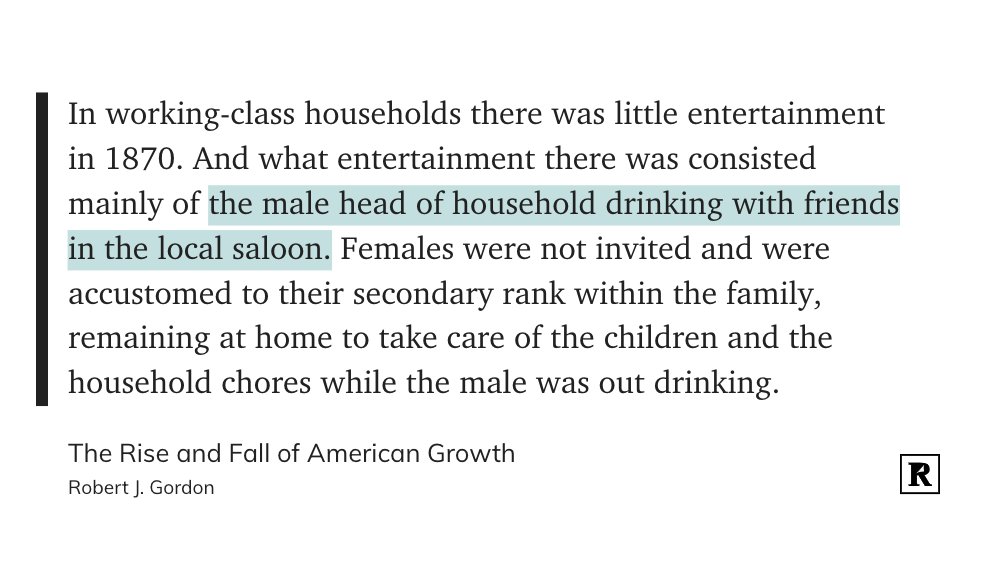

Progress in milking: pic.twitter.com/xpPMSc2fKq
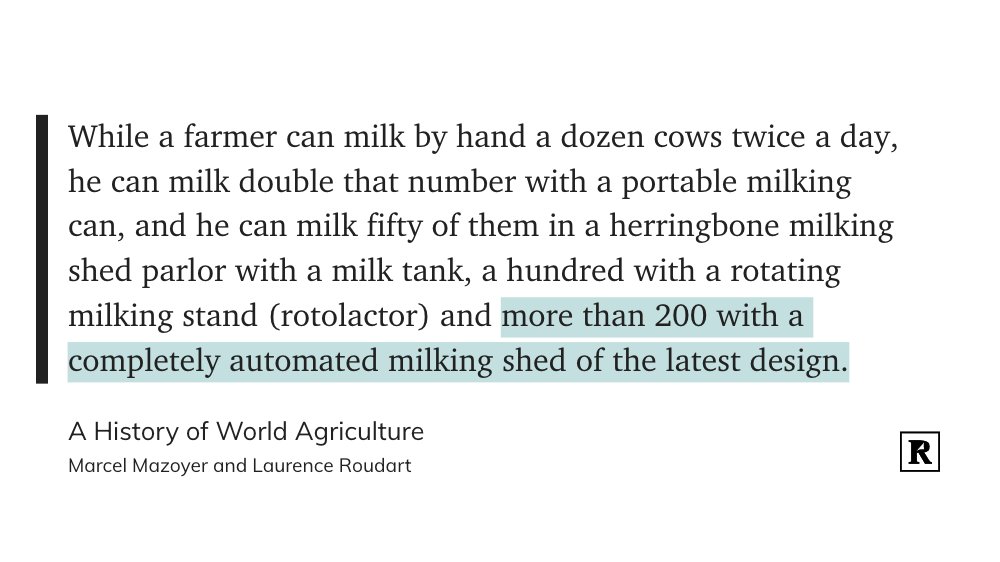

The late, great @HansRosling on “living in balance with nature”: pic.twitter.com/vSv6uUmwKS
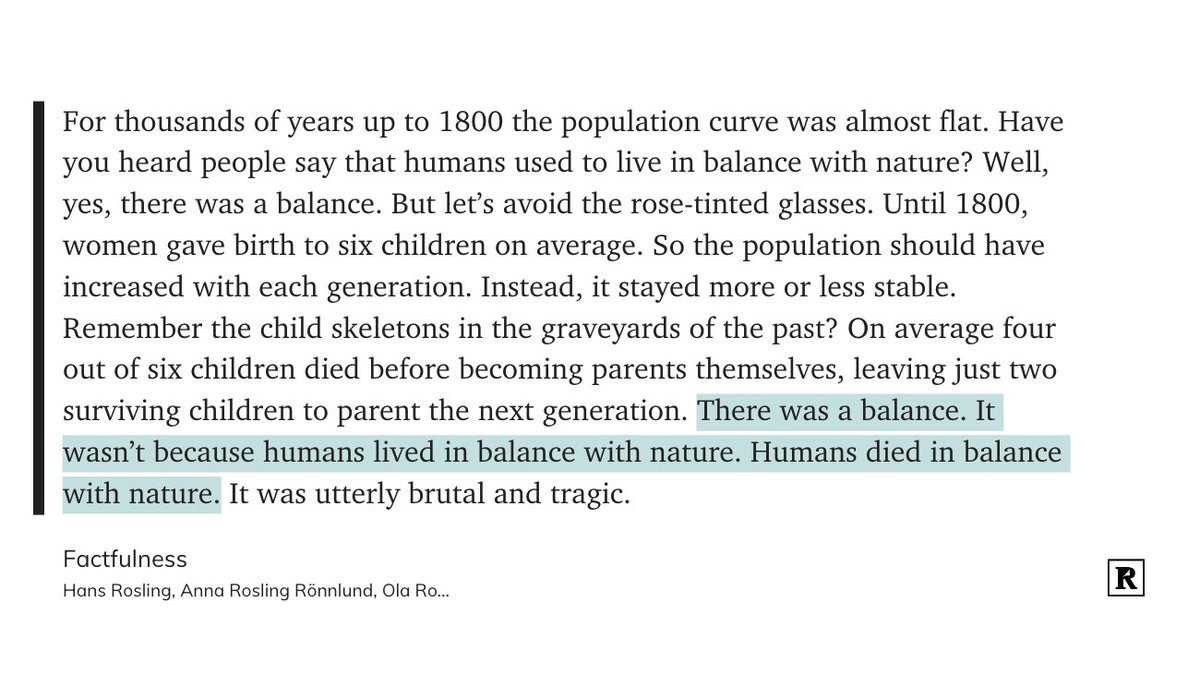

Without industrial literacy, the pre-industrial past seems bucolic. But subsistence farming is nothing like a road trip to go backpacking through a carefully groomed modern state park pic.twitter.com/EfCNmzvYpH
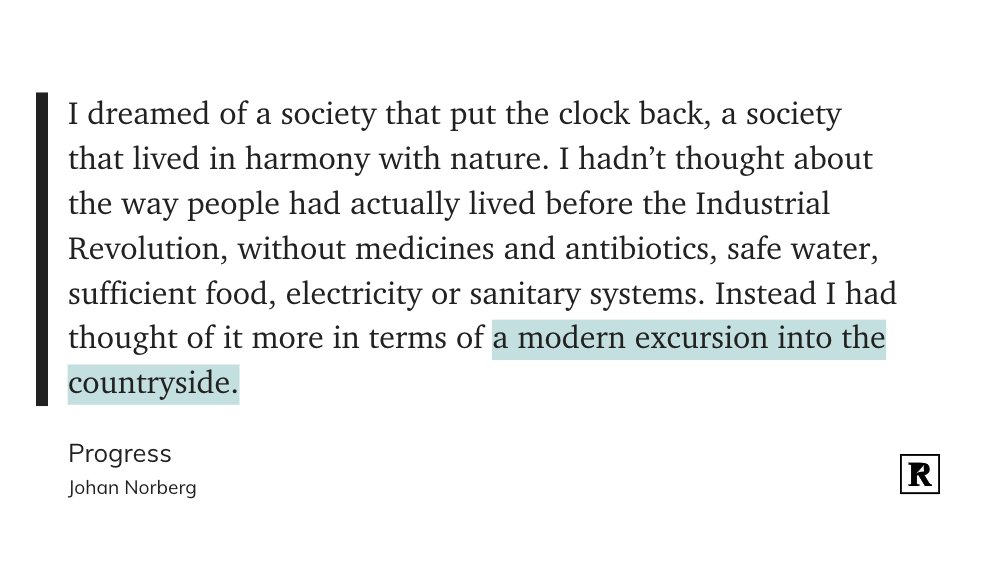
Job security is much greater today than in the early 20th century and before. Day labor and piece work were gradually replaced with full-time permanent employment. pic.twitter.com/7I5ciw6GTI
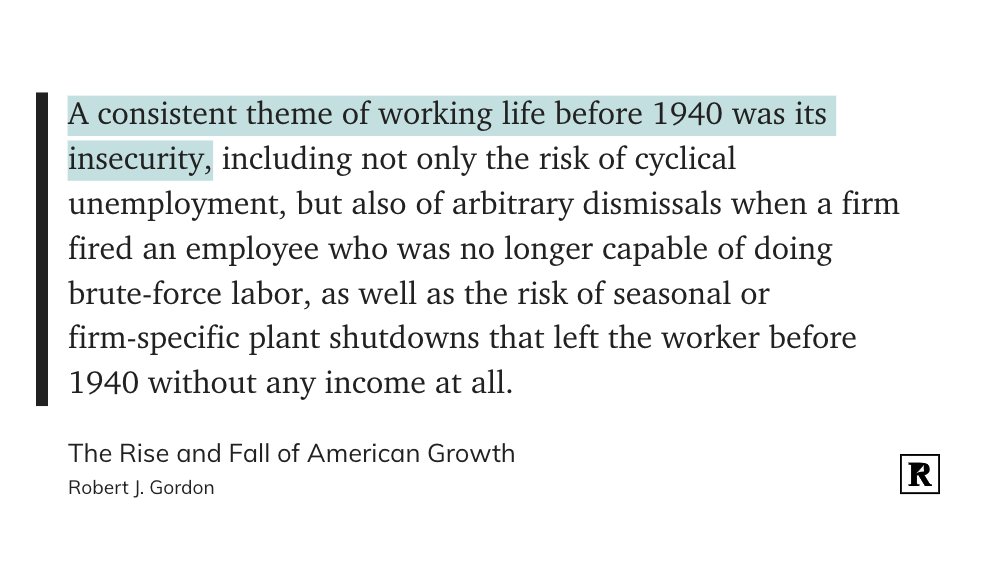

Day labor and piece work were gradually replaced with full-time permanent employment.

We take food security for granted, but it's a major 20th-century achievement. In addition to the threats of drought and frost, crops were also subject to the ravages of disease and pests: pic.twitter.com/G0PQCSwLSy
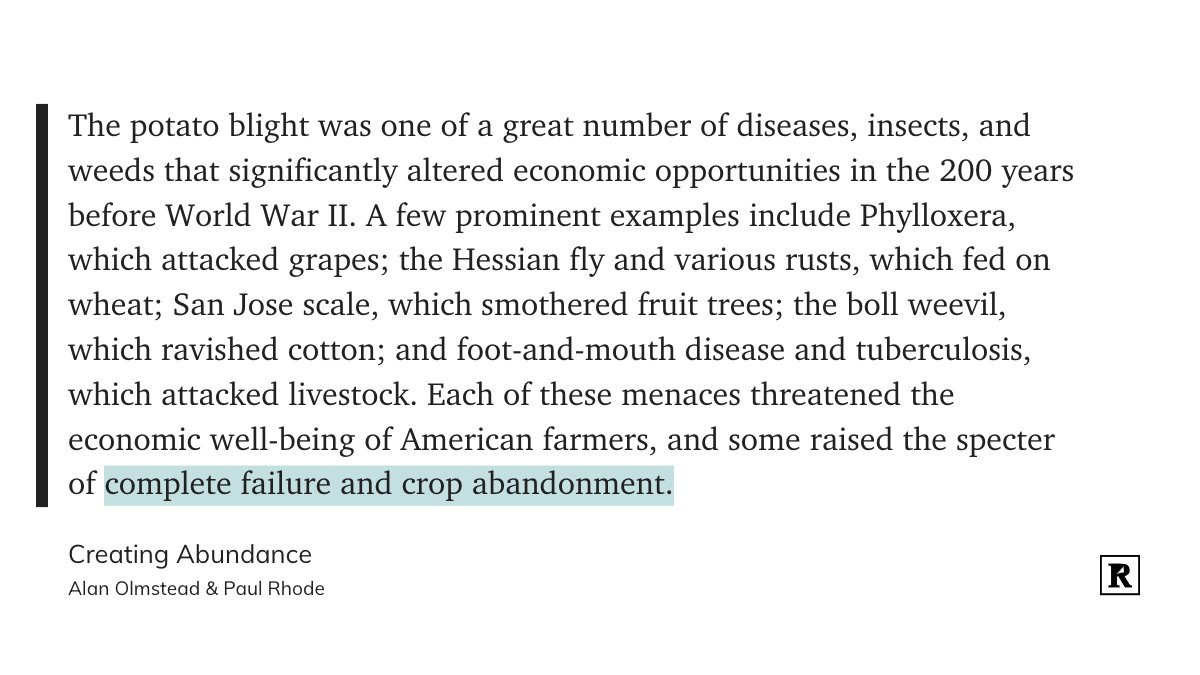

Imagine having no central heating, and having to take a hot brick from the kitchen stove to your room to warm up your bed at night: pic.twitter.com/rAMaK8XFGn
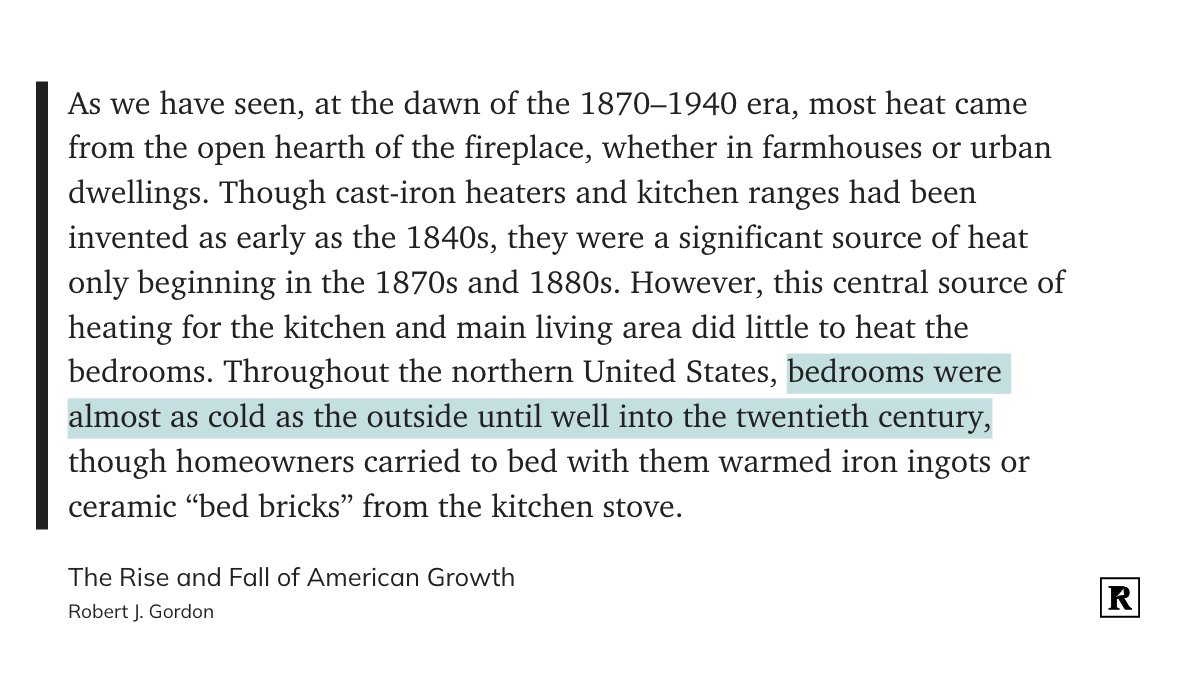

Artistic sensibilities can help scientific discoveries: pic.twitter.com/PWnxfSoAgO
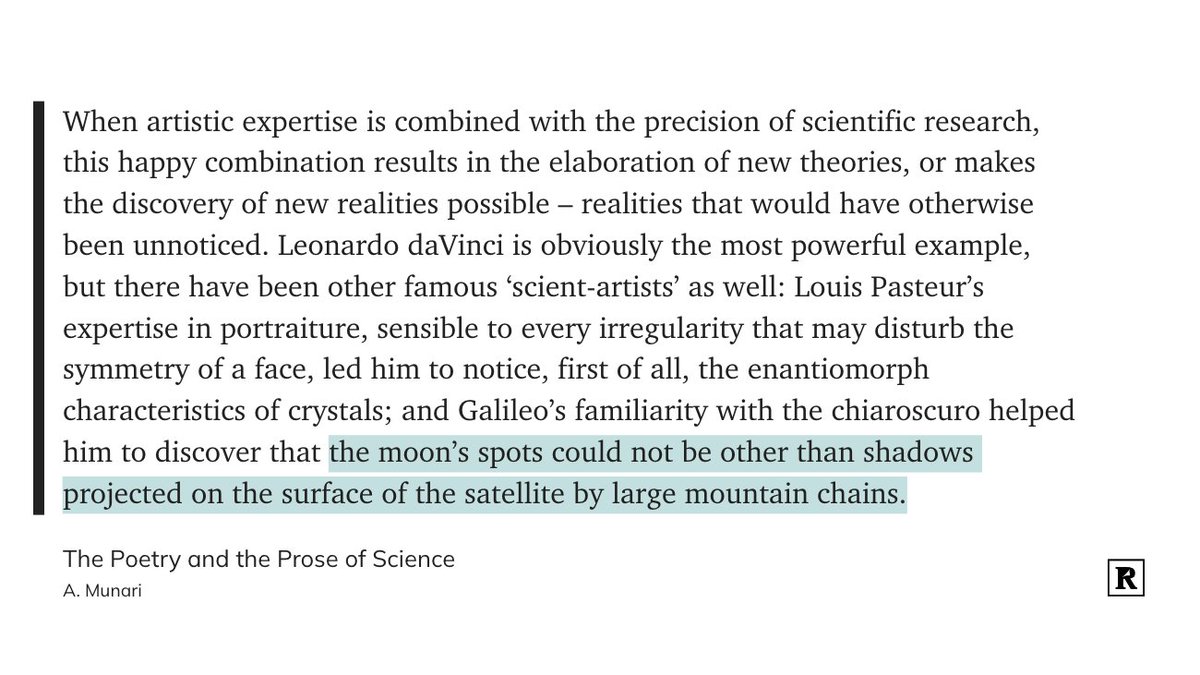

“The Revolution has given the people the meter” pic.twitter.com/9TmuqNNUEN
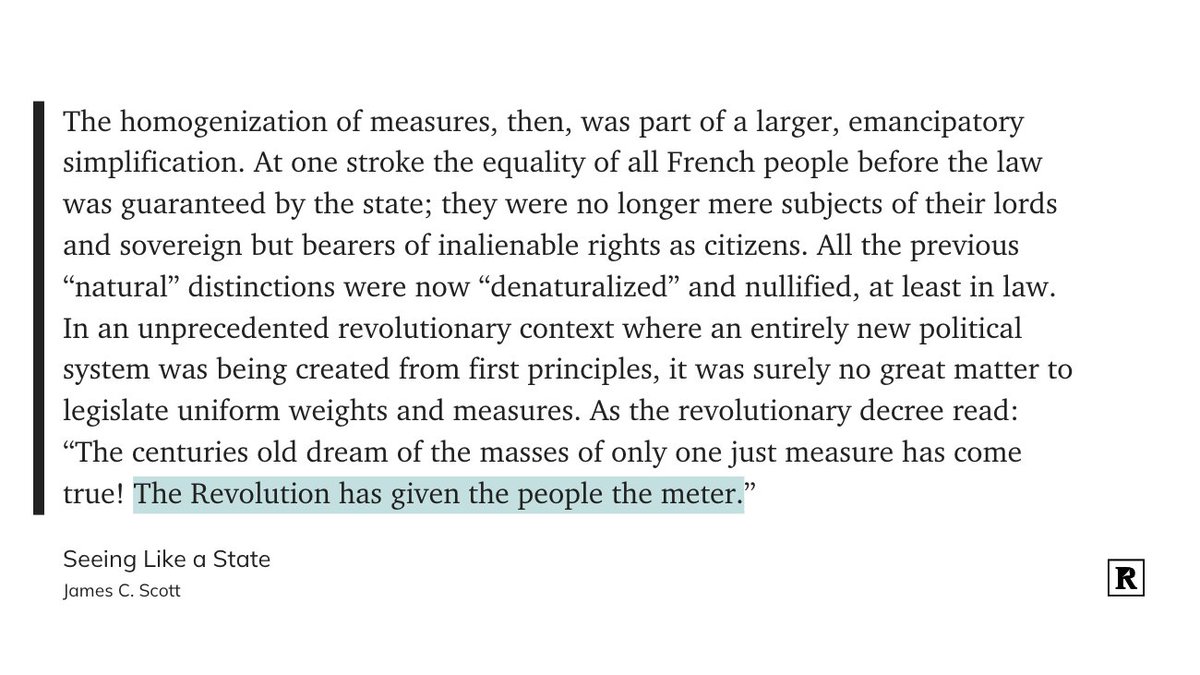
The three sins of the experimenter pic.twitter.com/DcWBmcO4Sz
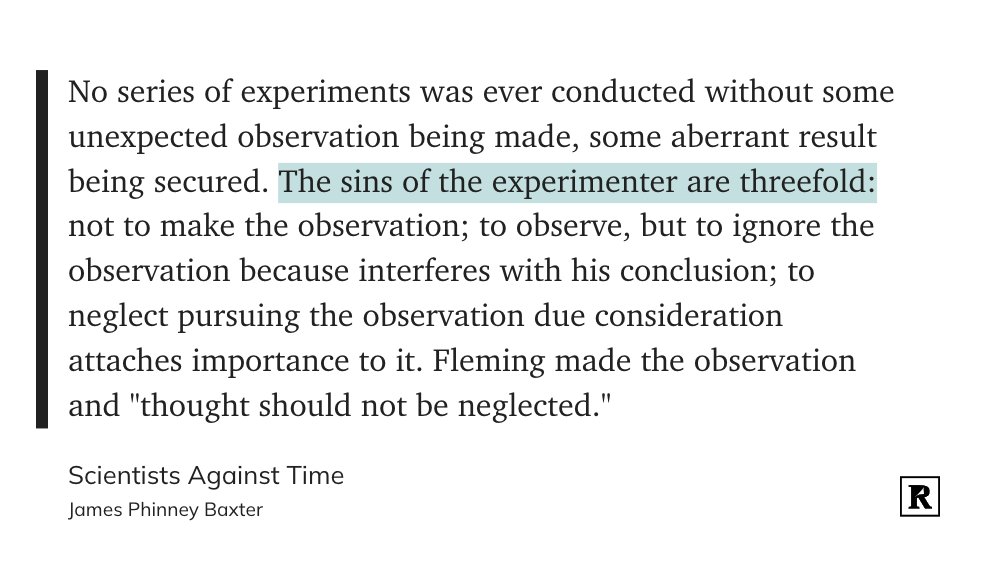

Howard Florey—head of the lab that created penicillin, and hence one of the greatest benefactors of humanity—wasn't motivated by humanitarianism, but by science: pic.twitter.com/Ao2IFzBUH7
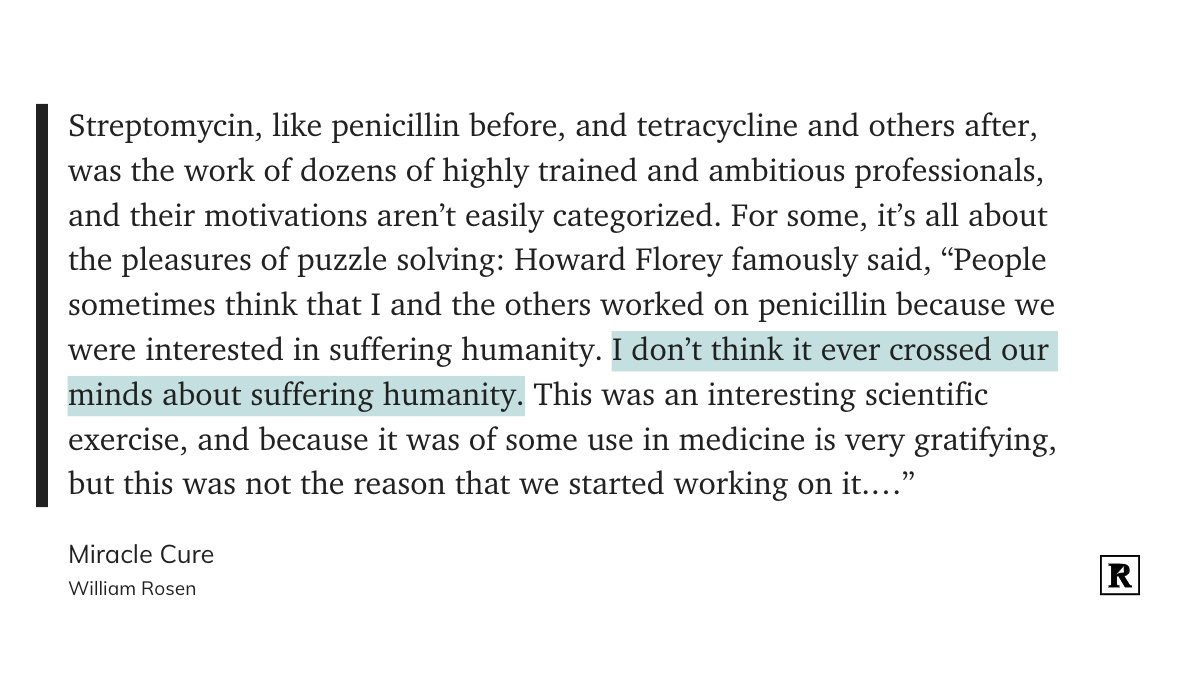
Wealth is *created*. The corollary: “we can figure out how to make more of it” @sapinker pic.twitter.com/fmXtpM4neM
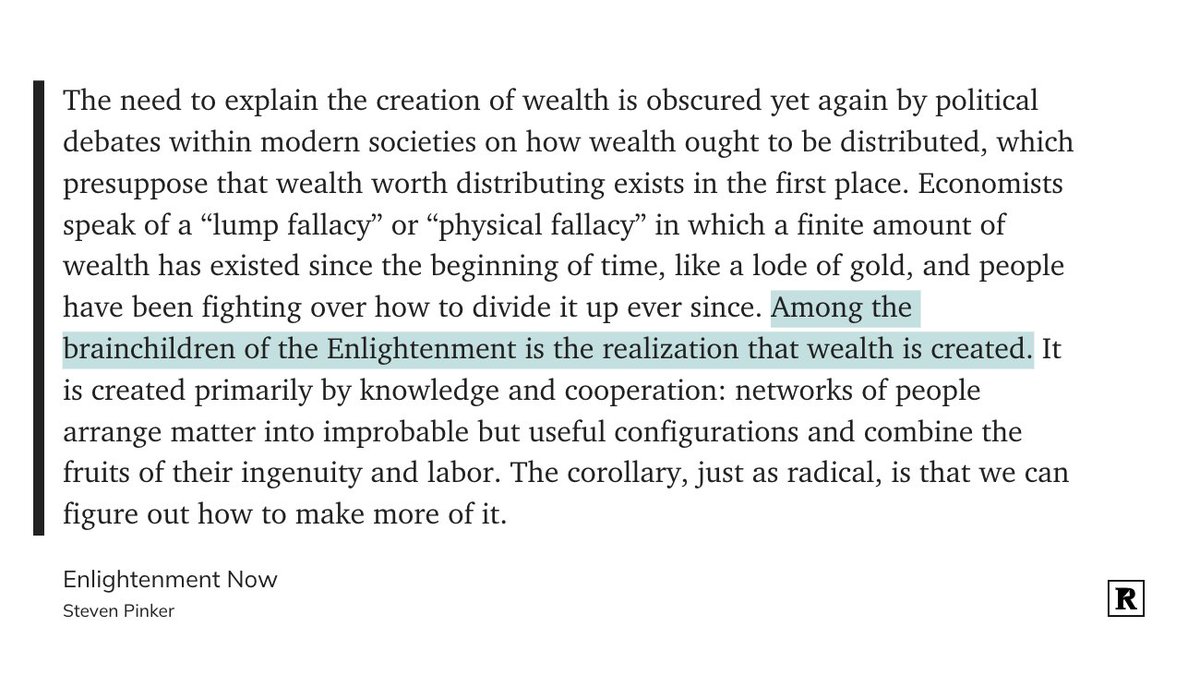
Tinkering alone could never have created a sustained Industrial Revolution: pic.twitter.com/OOYtwzPZm8
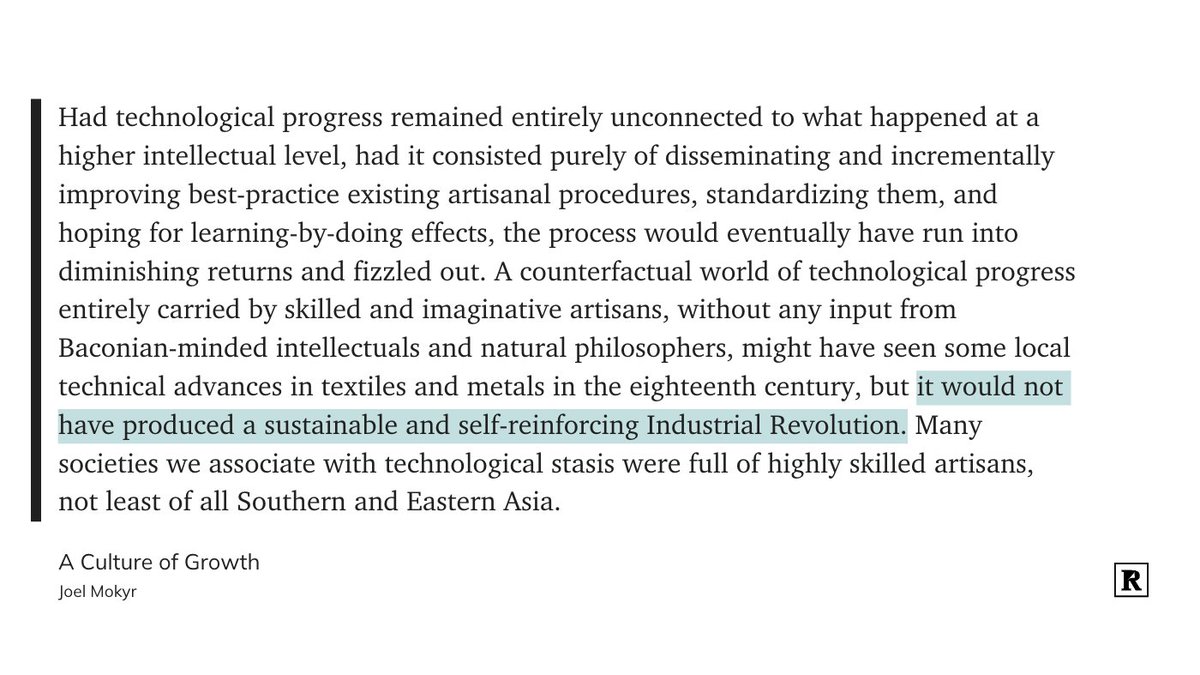
Nature is neither our loving mother nor our sworn enemy. It is amoral and indifferent to us pic.twitter.com/9JSFjTtvsE
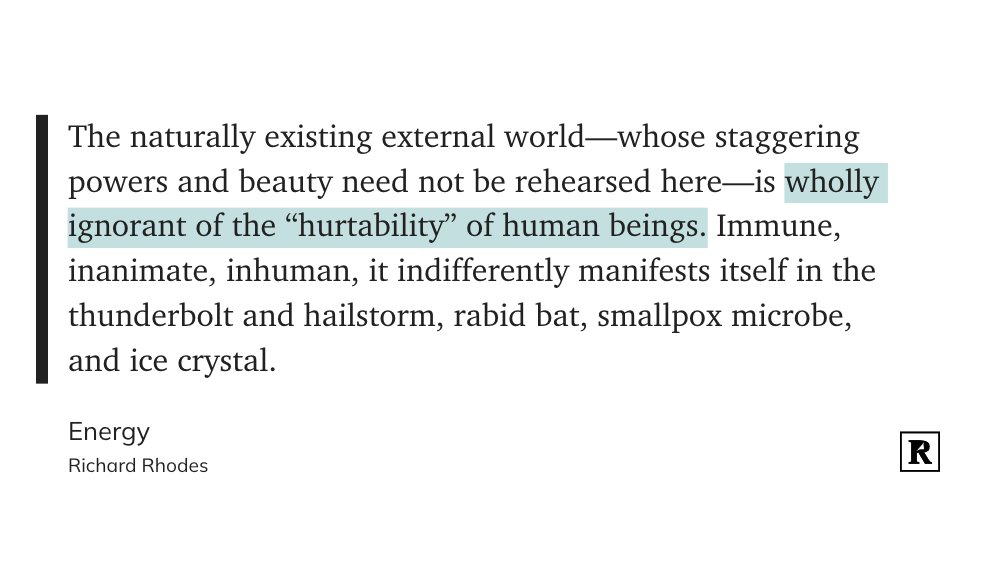
The 19th-century American attitude toward safety, as summed up by one California railway man to Rudyard Kipling: pic.twitter.com/hBTAcn5Tnt
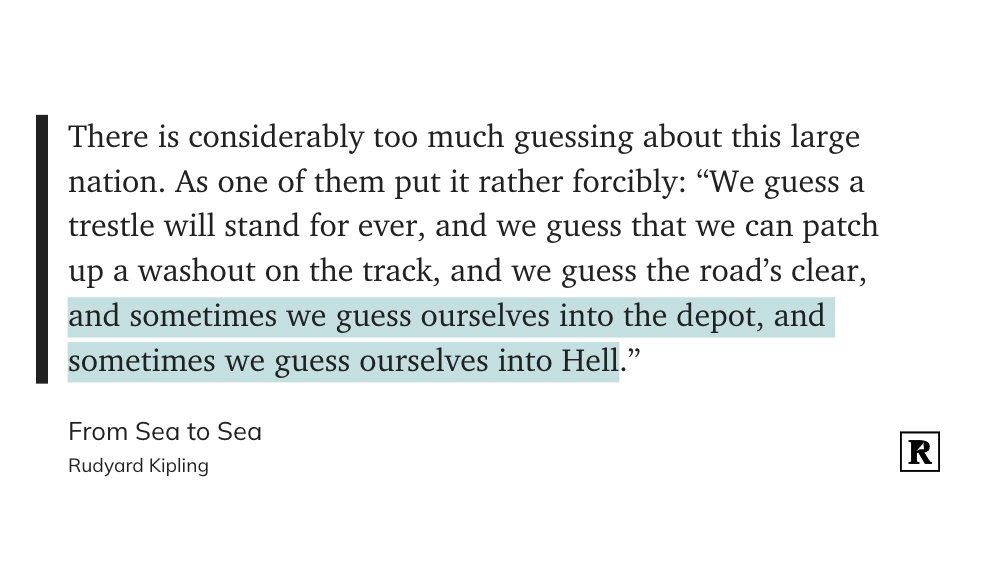
This idea seems obviously wrong to us now, but it was not at all obvious before the germ theory pic.twitter.com/Jn5dRxfVST
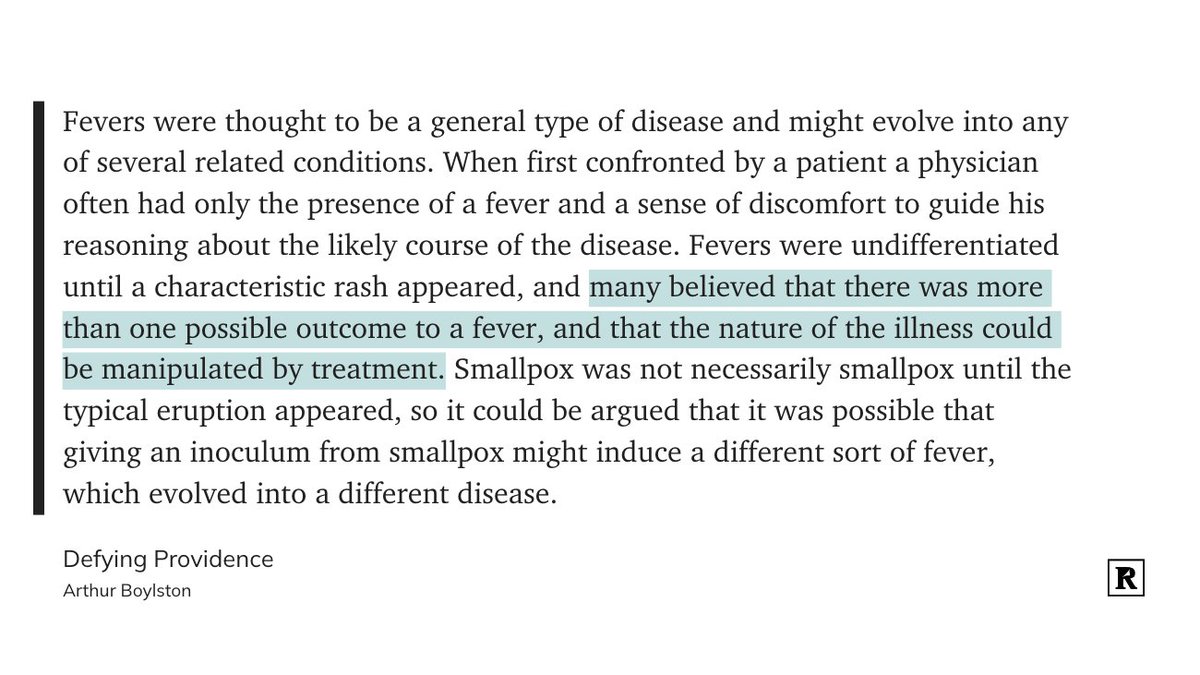
Why do we think of Cassandra as the one who's cursed? pic.twitter.com/MEzEGXr6rv
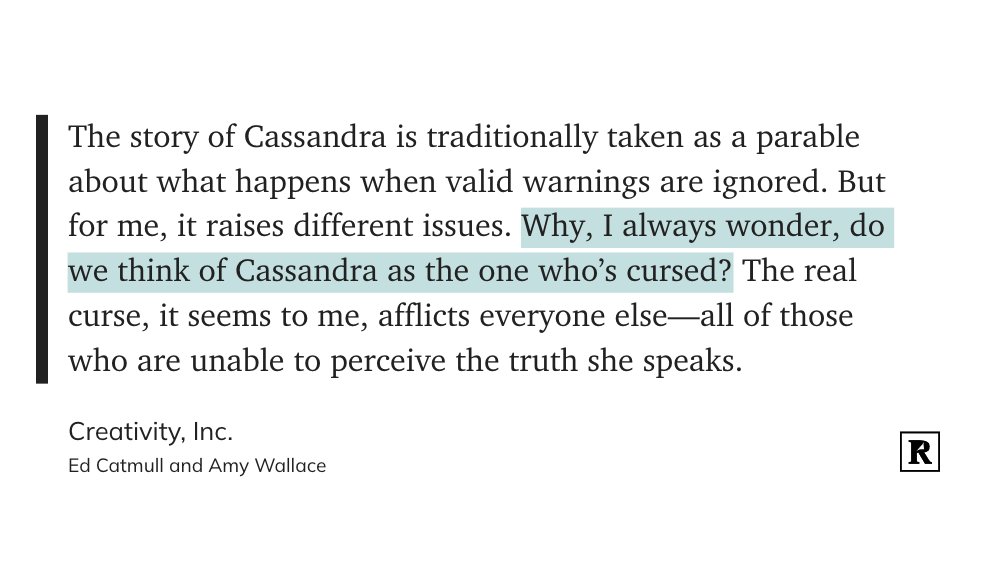

“No one keeps track of whether research programs denied funding by NSF or NIH are less productive of discoveries or inventions than those that are funded.… We assume it works because many people publish many papers and some people manage to make some discoveries” twitter.com/ArtirKel/statu…
From 1935. Even before WW2, philosophers and historians were losing their optimism and their belief in progress: pic.twitter.com/dmN8bzhe13
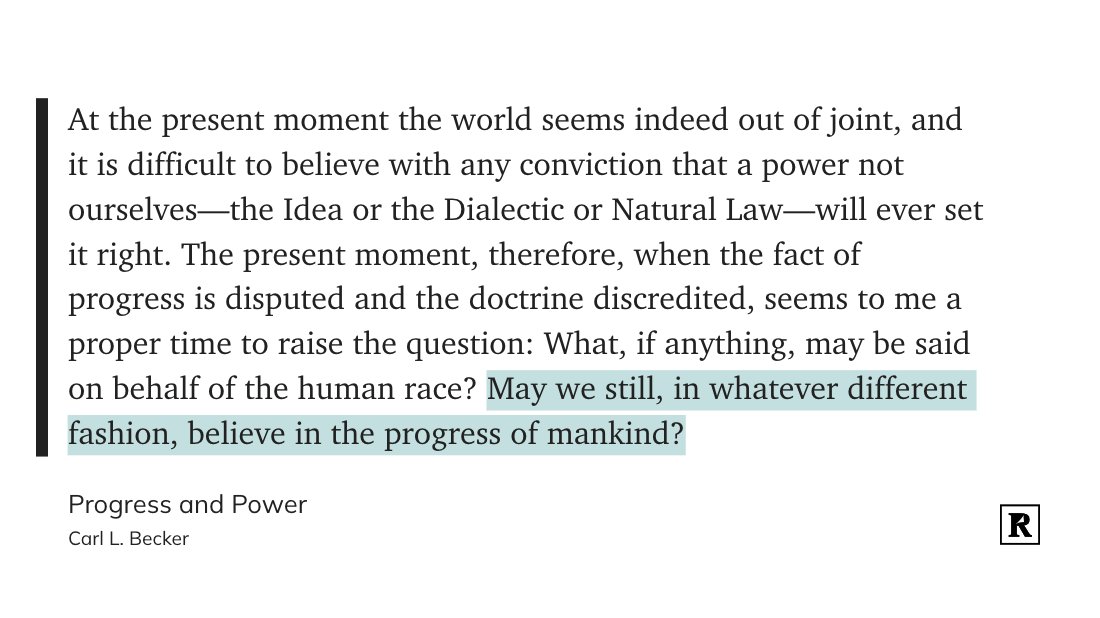
But, though we had plenty of money, there was nothing our money could buy And the Gods of the Copybook Headings said: “If you don't work you die” twitter.com/calebwatney/st…
To master the creative process, give yourself permission to create junk. This is one of the many things I learned diving into everything @jamesclear has published on creativity and building a writing habit. Here's a thread of his best articles, tweets, and podcast appearances:
IMO, one of the most simple yet powerful books of our times is ATOMIC HABITS by @JamesClear “You should be far more concerned with your current trajectory than with your current results.” amzn.to/3g9WkHc
I love this by @JamesClear pic.twitter.com/723g5Xx9wn
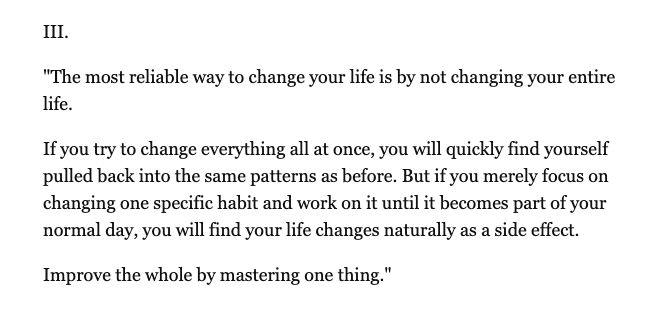
"Too often, we fall into an all-or-nothing cycle with our habits. The problem is not slipping up; the problem is thinking that if you can’t do something perfectly, then you shouldn’t do it at all." –@JamesClear

"The bad days are more important than the good days. If you write or exercise or meditate or cook when you don't feel like it, then you maintain the habit. And if you maintain the habit, then all you need is time." –@JamesClear

Out of endless highlights, folded pages, and notes in the 264 pages of Atomic Habits by @JamesClear -- the one line that stuck out like no other was: “Every action you take is a vote for the type of person you wish to become.” So simple. So powerful.

"You could beat any grandmaster at chess if you could move twice every time he moved once. Speed gives you the edge.” —Peep Laja Question for people who play chess: Is this true? Could a run-of-the-mill chess player beat @MagnusCarlsen under these rules? Has it been tried?





























